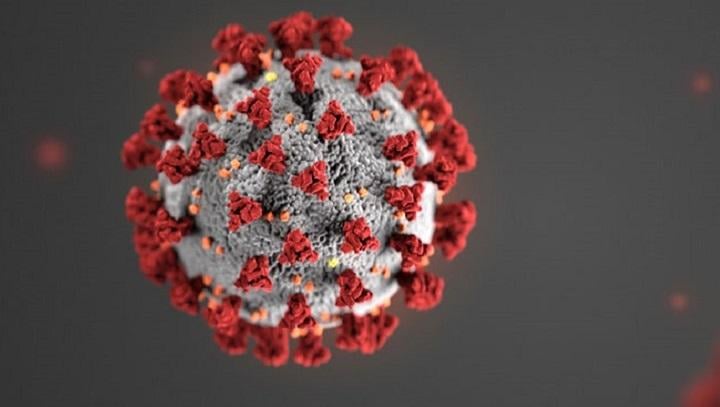Desirable Deaths, Malignant Neglect

Bella Ciao! Bella Ciao! A song which traces its origins to the struggles of working women (rice-weeders) in 19th-century Northern Italy, and which later became an anthem of anti-fascist struggles there, recently made a comeback on the streets of Rome.
Well, there was no mass gathering, obviously, but you could hear people’s voices sing not only Bella Ciao from windows and balconies but many other patriotic numbers, some newly-composed.
With the world’s eighth-largest economy under lockdown, people restricted to their homes and fatalities due to novel coronavirus already over 1,400, this collective singing was the Italian people’s way of finding a moment of joy in this time of anxiety. It “lifted their spirits” and became a unique way for them to declare solidarity with each other.
As the world watches with bated breath the unfolding of the coronavirus pandemic and the unprecedented measures that states and municipalities have been forced to take to control it, similar stories of solidarity and hope are emerging from different corners of the world. In these days of gloom it is heartening to know, for instance, that doctors and paramedics from Cuba and China have arrived in Italy to assist the health authorities there.
China, of course, has the experience of having overcome the peak of infections, but we also learn that Cuba has developed Alpha-2B which is considered a “powerful” treatment of coronavirus. In fact, Chinese doctors had used these Cuban antivirals in their fight against coronavirus. Perhaps the world, which moves on the pharmaceutical-for-profit model, has not deemed it necessary to look into its successes.
Nearer home, the Kerala government and society have joined the effort to fight this pandemic together, receiving accolades in the media. The state health department has left no stone unturned to combat the spread of novel coronavirus. It realised the danger much in advance and put measures in place to quarantine people coming from the affected regions. A newspaper has reported that doctors working with the Kerala government are working through graveyard shifts. They were literally at cremation grounds, assisting families.
Similarly, a surgical supplies store in Kerala has been selling face masks at Rs 2 to make them widely available despite having purchased each mask for Rs 8. Such instances emphasise that a human tragedy is no time to mint money. The Kerala government has closed all schools and Anganwadis because of the corona scare, but one viral photograph shows an Anganwadi teacher delivering mid-day meals to a child’s home.
Tragedy brings out the best and worst of humanity, perhaps it also brings out its stupidity. The news of Ramdas Athawale, a Union Minister, leading a chant requesting the virus to leave India, falls in the category, at least, of the unscientific. But how shall one categorise the leader of a Hindu supremacist outfit, who has organised a gomutra or cow urine party to, as the outlet says, “piss off coronavirus”?
An Iranian ayatollah has suggested applying violet oil to the anus—rather a bizarre cure. Videos have also appeared of Iranian men licking the zarih, a gilded structure that encloses a grave in a mosque or a shrine, in Qom as a “preventive” measure against coronavirus.
It is worth underlining that all such “solutions” have become the butt of jokes and have no official sanction even from hardline governments.
As one ponders over the strenuous efforts of people to contain the pandemic individually or collectively, one cannot help but notice how right-wingers are using it as an opportunity to further pseudoscience. This pandemic has exposed, to cite World Health Organisation director-general Tedros Adhanom, the “moral decay” which had taken a hold of capitals across the world. The director-general sounded shocked by the “seeming rapidity with which governments were giving up on any serious effort to contain the disease.”
Observing the cavalier manner in which leaders of the developed world responded to this unprecedented crisis—they seemed more concerned with profits for the corporates than the health of their people—the WHO chief reminded them: “Whether it kills a young person or an old person or a senior citizen, any country has an obligation to save that person. So that’s why we’re saying no white flag, we don’t give up, we fight. To protect our children, to protect our senior citizens, at the end of the day it’s a human life. We cannot say we care about millions when we don’t care about an individual person.”
United States President Donald Trump, leader of the biggest economy, epitomises the criminal indifference towards people’s health and utmost concern for the health of the Wall Street. His callousness was evident despite an admission by Anthony Fauci, the director of the National Institute of Allergy and Infectious Diseases, that “it’s possible” that millions of people may die from the pandemic in the United States. While it was expected that Trump would announce measures to mitigate the spread of the disease in his primetime address to the nation on 12 March, none of them materialised.
Forget taking any “responsibility for the inaction and disarray that has characterised his administration’s response to the crisis”, there was not even an announcement by Trump of fresh funds for hospitals or increasing the resources available for testing, or even providing the most basic protective equipment for front-line medical workers. Yet he announced a $50 billion loan to businesses and appealed to Congress to adopt a pro-corporate payroll tax cut. Trump, nevertheless, presented his announcements as the “best anywhere in the world”.
The POTUS has not just projected that Coronavirus is not a serious threat but also proclaimed that everything was fine. That is why he focussed entirely on the impact of the crisis on the stock markets. His emphasis was on treating the pandemic as if it were a foreign invasion. He even described the disease as a “foreign virus” which originated in China as he announced unprecedented travel restrictions.
During this global crisis, when all humanity is at risk, Trump “sought to buy up the exclusive rights to a promising Covid-19 vaccine from a German biotech firm”. As expected, this attempt has been greeted with revulsion, anger and outrage.
Responses of other leaders of the advanced capitalist world has not been qualitatively different.
German Chancellor Angela Merkel admitted that 60 to 70% of the country’s population would likely be infected—potentially meaning the deaths of hundreds of thousands. Yet, even as the government focuses on trying to slow down the spread of the virus, it recently passed a five-year budget that does not take into account the impact of this pandemic. But it is the United Kingdom that takes the prize: Prime Minister Boris Johnson declared, “I must level with the British public: many more families are going to lose loved ones before their time.” Yet, these countries did not deem it necessary to allocate additional funds to deal with the crisis.
Sir Patrick Vallance, chief scientific advisor to the British government, has insisted that it is “not possible to stop everyone getting it, and it’s also not desirable.” It was left to Telegraph columnist Jeremy Warner to make the thinking within British ruling circles more explicit: “Not to put too fine a point on it, from an entirely disinterested economic perspective the Covid-19 might even prove mildly beneficial in the long term by disproportionately culling elderly dependents,” he wrote in his 3 March column in The Telegraph, UK. [Covid-19, as the Novel Coronavirus is called, is said to impact elderly people more.]
Trump, Johnson or any other leader of the capitalist world: this pandemic has exposed how austerity—or cuts in the public expenditure on health, education and other infrastructure—are going to have a very negative impact on people’s health in coming days and years. Cuts in the National Health Service (NHS) seems to be a classic warning of the crisis that awaits these countries. Lower budgets for public-funded healthcare means a system struggling with delays, overworked and exhausted doctors and nurses and staff shortage is now expected to cater to the huge influx of patients with an illness we still know little about.
The structural limits of a profit-based system to devise any long-term plan to control such pandemics stands exposed. The world has witnessed multiple viral outbreaks in the past two decades, SARS, MERS, Zika, Ebola, and so on, each provoking research to produce a vaccine, but except Ebola, no effort succeeded. It is not difficult to comprehend the reason, which has been summarised by The Guardian: “The current setup is often the worst of both worlds—too slow to pick up research on new threats because the money isn’t there, and too quick to drop it if it can’t be sure the money will be there in the future. It’s a highly market-dependent system, and the market usually fails us.”
With a failing public health system, any pandemic prompts the custodians of the governments basically to shirk responsibility and single out individual citizens, enjoining them to take care of themselves. The “assistance” is limited, for the most part, to directives to wash hands regularly, restrict oneself to the home, practice social distancing, and so on.
These vindicate what Margaret Thatcher, the Prime Minister of the United Kingdom from 1979 to 1990—who is celebrated in the Western world for having presided over a “social revolution” in which nationally-owned industries were privatised and the welfare state was drastically cut down—had famously said: “There is no such thing as society. There are individual men and women, and there are families. And no government can do anything except through people, and people must look to themselves first.”
The author is an independent journalist. The views are personal.
Get the latest reports & analysis with people's perspective on Protests, movements & deep analytical videos, discussions of the current affairs in your Telegram app. Subscribe to NewsClick's Telegram channel & get Real-Time updates on stories, as they get published on our website.
























